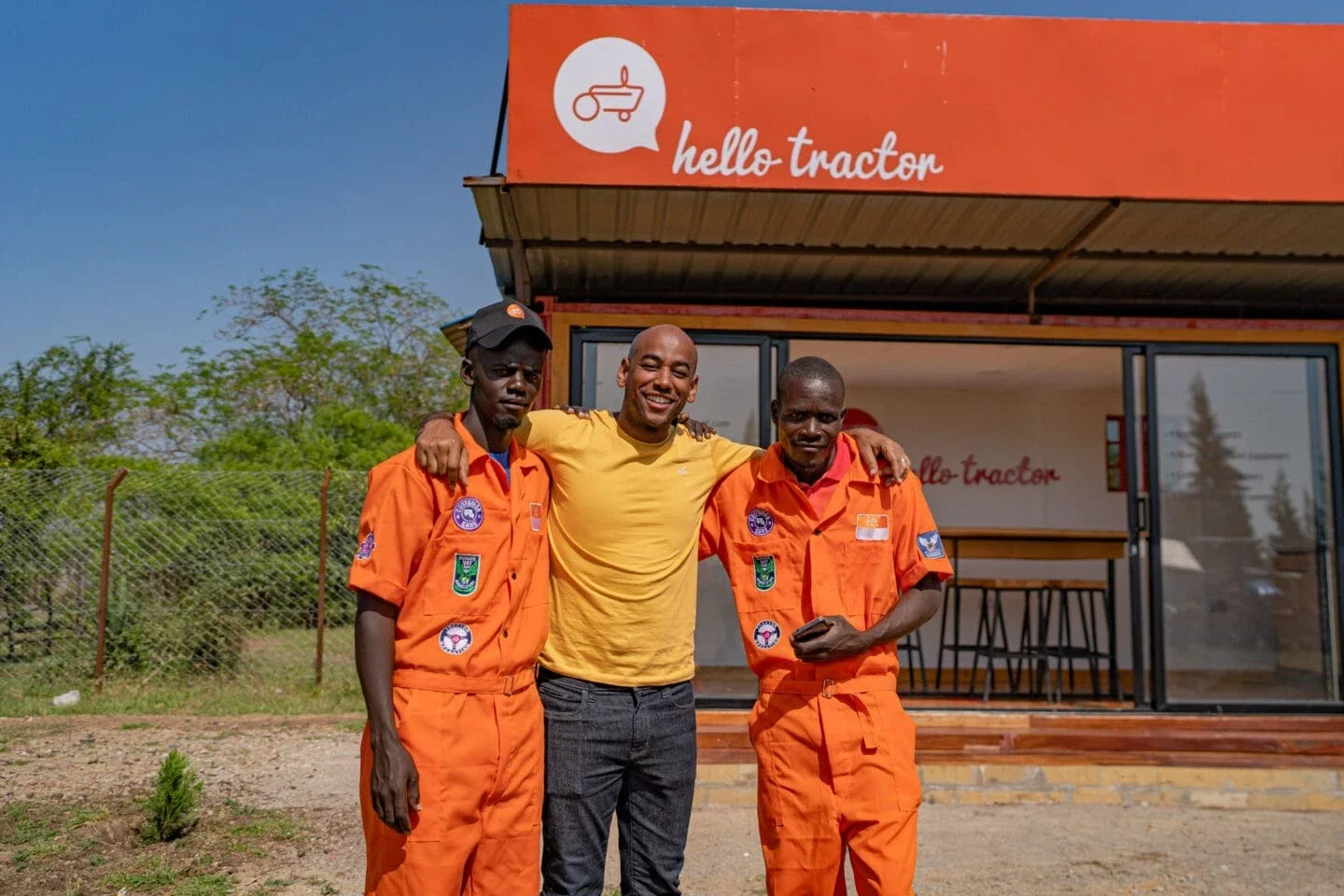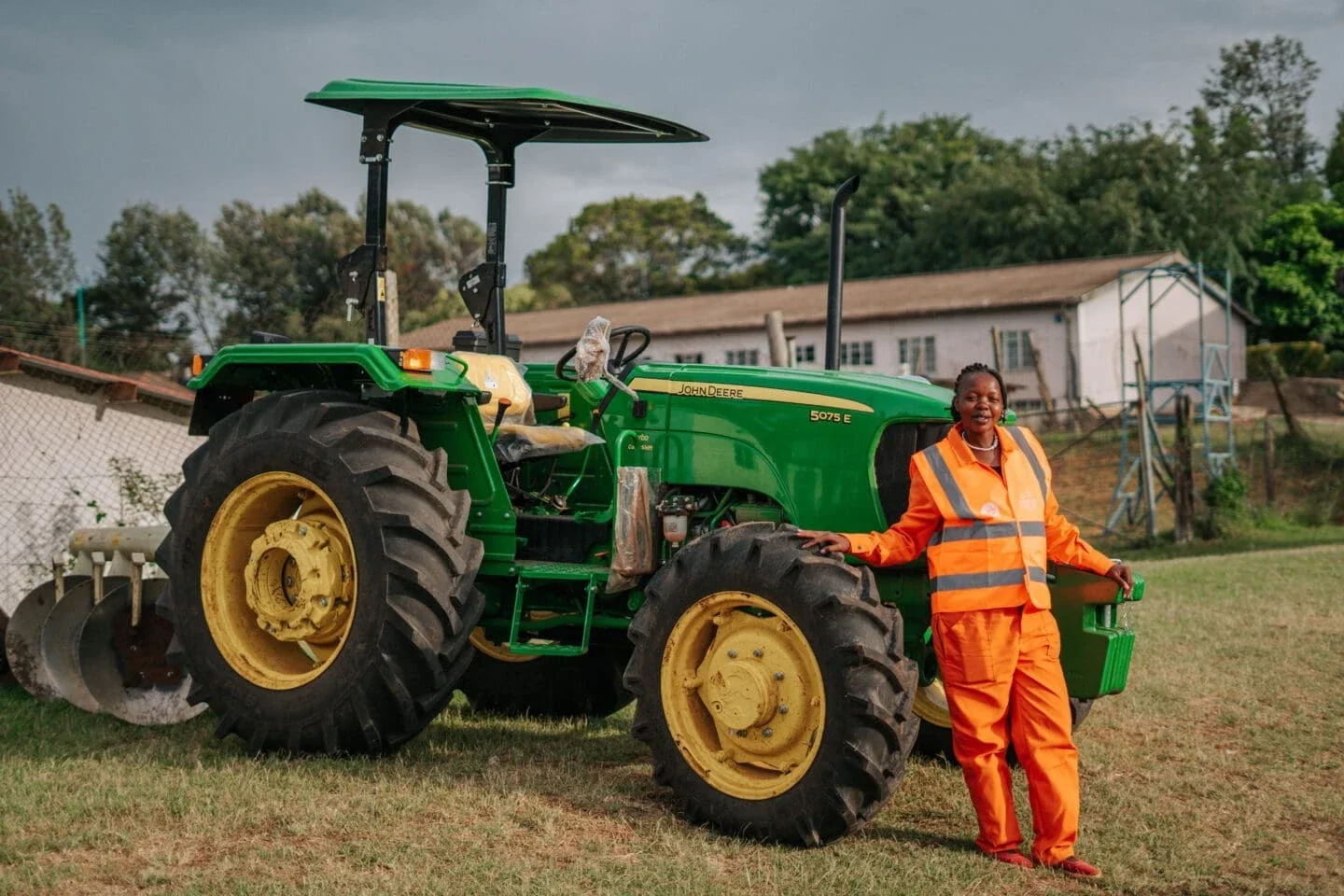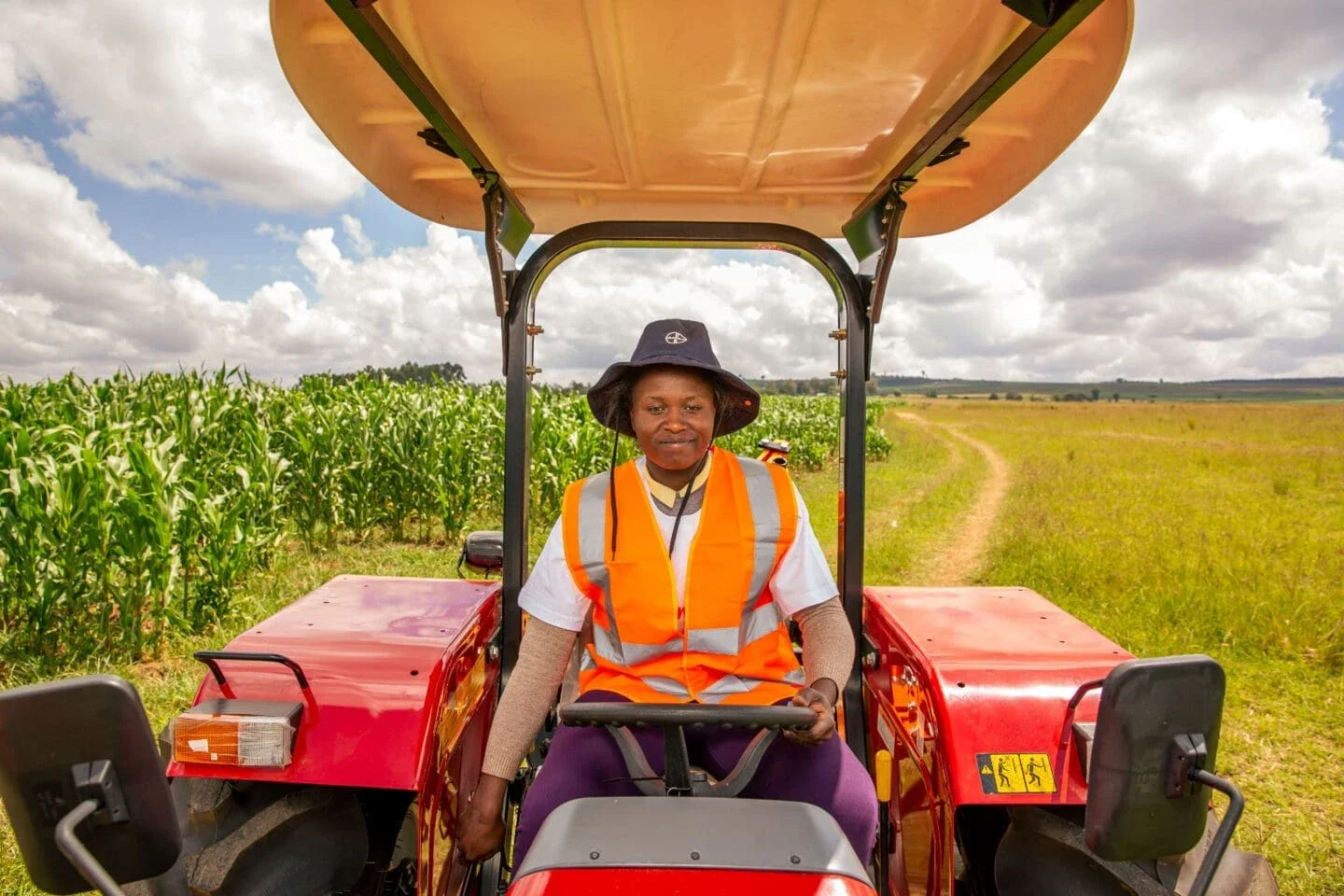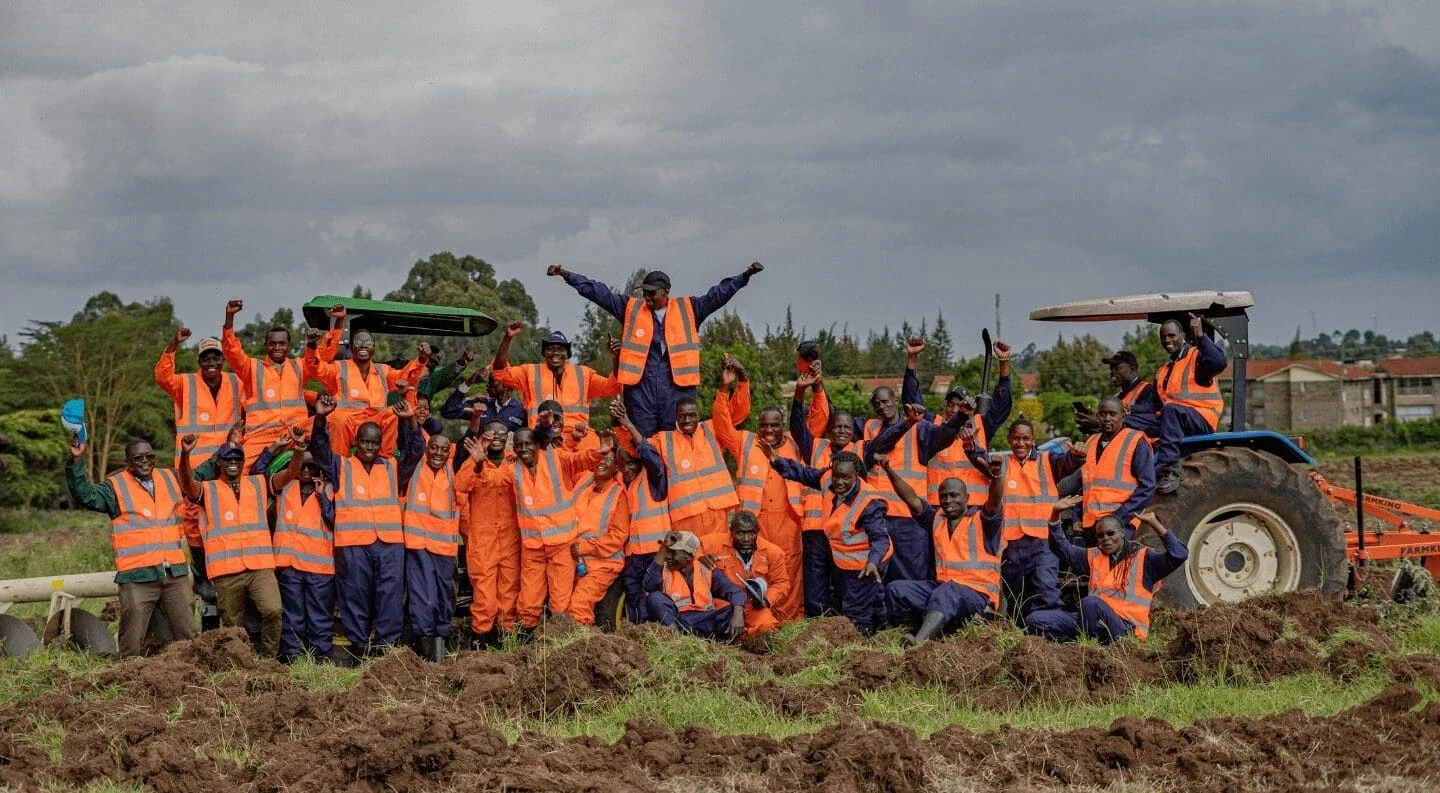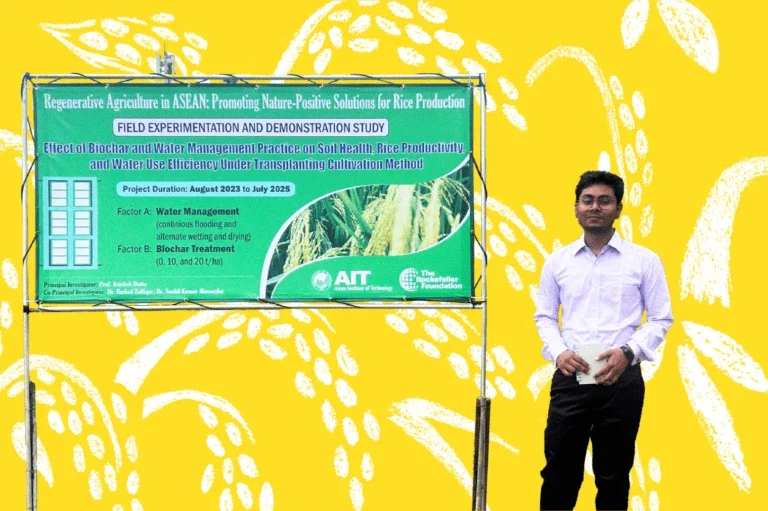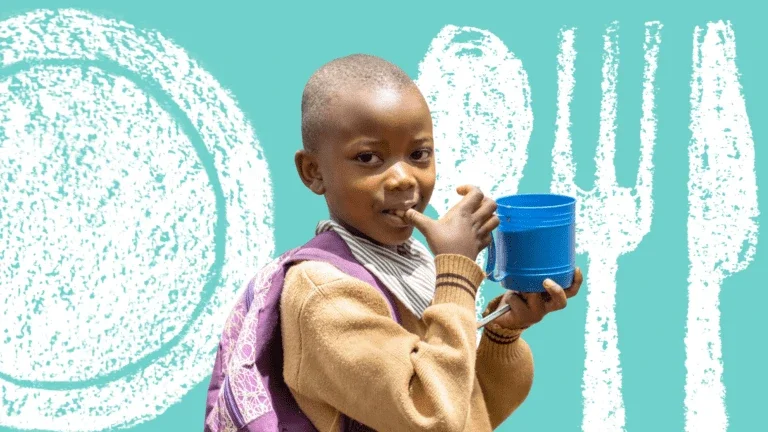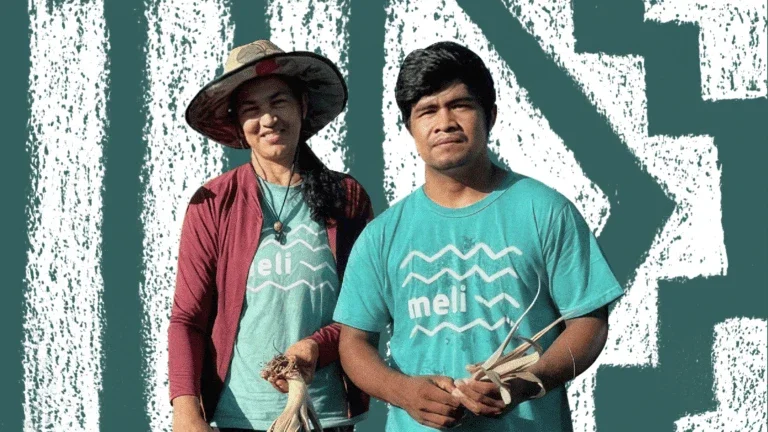Why it Matters
- 0%%
of Africa’s population relies on agriculture for income – but crop yields lag behind the rest of the world [CNN]
- 0Of Africa'sOf Africa's
yield gap arises from lack of equipment
- <0%%
of commercial lending goes to agriculture in Africa
The Power of One Tractor
“If you’re a farmer in Africa, you expect to live to about 60. This means you have about 40 chances to generate income from your land so you’re going to be very cautious about who you trust coming into your community,” Oliver said.
“We knew from the start that in order to be successful, we needed to introduce programs slowly and programs that didn’t have farmers betting the entire farm – and their entire income – on us.”
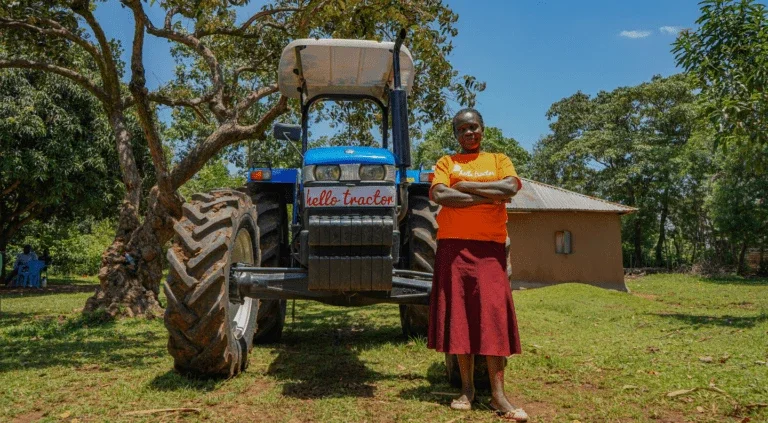
Hello Tractor’s digital marketplace app connects tractor owners, via booking agents, to smallholder farmers in need of equipment. The goal: Help increase the economic opportunities to some of the world’s most underserved communities.
The booking agents, who have direct relationships with their local communities, schedule the tractor appointments, often booking up to 40 farms at once to increase incentives for tractor owners.
For smallholder farmers using Hello Tractor, access to equipment has made planting 40 times faster and cost a third the price of manual planting – allowing them to take home more income and harvest each year.
For booking agent-turned tractor owner Samson Enesi, Hello Tractor’s services have impacted his entire community.
After planting and harvesting his own land in Abuja, Nigeria, Enesi rents his tractor to neighbors through the Hello Tractor app
“This has allowed me to help pull people out of poverty by increasing the yields of their fields,” said Enesi. “We have already employed two staff, which is bringing people out of unemployment, and aiming to try and get another tractor next year.”
Growing the Community of First-Time Tractor Owners
For tractor owners, Hello Tractor has provided a substantial second income, for some, up to $30,000 a year.
While still new, Hello Tractor’s pay-as-you-go program has allowed many to purchase their first tractor – including university student Peace Ahuoyiza Enesi.
“After booking over 500 hectares of land in my community, I was eligible for Hello Tractor’s pay-as-you-go financing program. As one of the few females interested in owning a tractor, my down payment was waived,” explained Enesi.
“Now the tractor is mine and I can reduce prices for farmers in my community in order to be more competitive and continue saving.”
Putting AI Into Farmers’ Hands
Delayed rains, abnormally long dry seasons – climate change has long affected the yields of Africa’s smallholder farmers and placed further economic hardship on an already struggling community.
Through a partnership with Atlas AI, Hello Tractor is putting Silicon Valley’s most innovative technologies into the hands of one of the most underprivileged global communities in order to build their economic resilience.
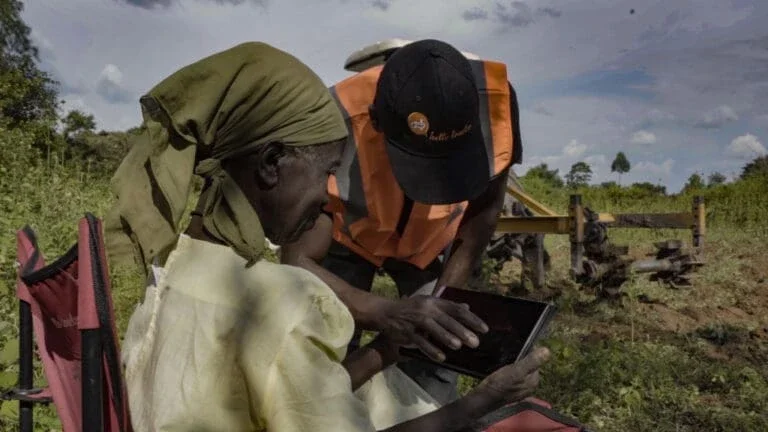
“The global supply chain issue Hello Tractor is looking to solve is set against the backdrop of climate change,” explains Vivek Sakhrani, Atlas AI’s Vice President of Data and Analytics.
Atlas AI is a technology company using satellite imagery and other earth observation datasets to build high resolution products and predictive models aimed at revealing socioeconomic conditions in some of the world’s most data sparse and impoverished environments.
To support Hello Tractor’s work, Atlas AI created a forecasting dashboard that combines regional historical data and remote sensing information to generate weekly recommendations on where and when to send equipment to smallholder farmers ready to harvest across the continent.
“To be able to place at Hello Tractor’s fingertips where farmers are in need of tractors – at the exact moment they need them – means we can help improve livelihoods and provide information historical records can no longer unlock due to changing climate patterns.”
Innovation For and By the Community
From the start, Hello Tractor has pushed the envelope on what is possible to help those in need.
When people said it was impossible to get tractors into the hands of Africa’s farmers, they stuck to what their data said.
Today, they’re providing services to over one million farmers and have financed over 300 tractors – a number they’re looking to 10x in a new partnership with John Deere.
When the same individuals scoffed at using A.I. to solve the supply chain challenges hindering Africa’s farming communities from rising out of poverty, Hello Tractor found a partner who shared their vision.
But perhaps their greatest achievement has been earning the trust of the smallholder farming community.
“The reality is less about what Hello Tractor can do for the community and more about what community members can do for each other,” shares Oliver. “Our role is to create a platform for those in farming to share insights, learnings, and warnings so this word-of-mouth knowledge is accessible to all.”
“Hello Tractor certainly doesn’t have all the answers. And that’s a good thing. We’re creating opportunities with, rather than for, our farming communities and seeing them thrive.”
More in this Matter of Impact Edition
Fighting Climate-Worsened Child Hunger, One Cup of Uji at a Time
Most Kenyan schoolchildren head to class without having eaten breakfast. Cup of Uji is doing something about that.
Read MoreClimate Wisdom from the Frontlines
From the Amazon rainforest, to bustling Bangkok streets, to a Baltimore composter creating “black gold," dive into this quarter's Matter of Impact focused on youth changemakers and impacted communities.
Read More